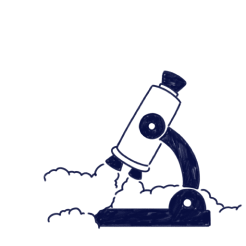In the life sciences, compliance is everything, and two of the most critical regulations are Good Manufacturing Practices (GMP) and Good Distribution Practice (GDP).
Getting through an ISO audit is one of the most important defining moments for any life sciences company. Whether you’re manufacturing pharmaceuticals, developing medical devices, or working in biotech, these audits are how regulators and customers c...
We all know that pharma companies are duty-bound to control the quality of the drugs they produce—it's paramount for protecting patient safety. One critical part of how they do this is by employing a Corrective and Preventive Action (CAPA) system.
Navigating the EU's pharmaceutical regulations can be a real head-scratcher. But there is one set of guidelines that you absolutely need to know if you are involved in manufacturing medicines in Europe. It is called EudraLex.
In the pharmaceutical industry, ensuring the safety and quality of medicines is a big responsibility. The U.S. Food and Drug Administration (FDA) and the European Medicines Agency (EMA) are the two most influential regulatory agencies overseeing drug...
Quality in biopharmaceutical manufacturing is non-negotiable. Especially in today's cultural environment, biopharmaceutical quality management plays a crucial role in safeguarding product quality and maintaining the reputation of biopharmaceuticals. ...
In the pharmaceutical industry, maintaining patient safety and product quality is not just a regulatory obligation, it’s an ethical imperative. Any oversight can lead to severe consequences, from product recalls to harm to patients, tarnishing reputa...
Pharmaceuticals are one of the most vital industries keeping the world running. Whether you are involved in the industry or not, the quality control and reliability of top drug companies affect everyone at some point.
When we observe the industry advancements, we see that software validation has become an indispensable yet challenging process. As regulations grow more stringent and technologies advance, the demand for smooth validation strategies is at an all-time...
Quality management software is gaining traction as a dependable adjunct to quality management teams. The benefits are substantial, especially in life sciences, where quality translates to rapport and, subsequently, sales. This growing reliance on qua...
The pharmaceutical industry is highly regulated to ensure the safety, efficacy, and quality of drug products. As part of the FDA’s current good manufacturing practice (cGMP) regulations, 21 CFR Part 211 outlines stringent guidelines for drug manufact...
There’s a common misconception in life sciences that quality “costs” money — that any investment in quality such as an eQMS is just another financial burden. But that couldn’t be further from the truth.
